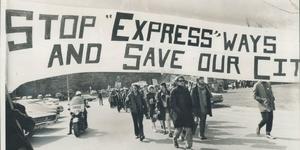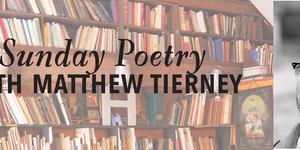
Slouching Towards Jerusalem
Tamara Faith Berger on her new book, Queen Solomon, as well as the Jewish diaspora, the legacy of Israel’s aliyah operations, and the fluidity of victimhood.
Coach House Books: Queen Solomon is different from your previous books in that the narrator is a teenage boy. How did this make writing Queen Solomon different from say, Maidenhead?
Tamara Faith Berger: Writing from a male mind made me feel like I could move more in both vocabulary and thinking – it was as if I could roam more freely, in general. I think this is due to the differences between male and female teenage consciousness, mainly in terms of confidence and safety. In Maidenhead, the female teenaged narrator tended to be a bit more frozen – due to external pressures and vulnerability, due to the way our society views female teenagers as targets, sitting ducks or whatever, also due to a lack of permission and ease in the expression of lust. I always feel like I have to acknowledge the reality that for teenage girls there are safety issues and bodily events around sexual expression – all this external stuff that affects us internally to a great extent. It's not all negative, of course: the female teenage mind can be incredibly lust-driven and far-reaching, but to be honest, I did not feel these safety or bodily pressures when dealing with the teenaged male consciousness. This was a markedly different experience for me. My male narrator's awareness, of course, tended to be frozen and limited in other places. Yet there remained this innate confidence and freedom that I reckoned with, and also tried to mess with, while exploring my narrator's first sexual experiences, his insecurities and his encounters with violence. I think that throughout all of my narrator's upheavals in the story, he had a certain lack of self-doubt which fed his sense of autonomy. I found this state pleasurable to be in, anger issues and all.
CHB: Barbra is also a fascinating character. How did you conceive of her?
TFB: As a kid in middle school, I learned about Operation Moses (1984) – the first Israeli military operation that involved a mass transfer of Jews from Ethiopia to Israel – when a girl in my class did a research project on the falashas, as they were called back then. I remember that her presentation affected me deeply. Admittedly, there was a romanticism to the images of Jews garbed in white from Ethiopia that appealed to my preteen self, the oldest Jews in the world, Black Jews being 'found' and 'rescued,' arriving in Israel. In retrospect, I think that my romantic curiosity at this time was likely also linked with a sense of dissatisfaction – conscious or not – with my own male-dominated, all white, Jewish upbringing. There were not very many Black people and certainly no Black Jewish people where I grew up. After learning about the Beta Israel as a young person, Black and Jewish were no longer separate. This seems very significant to me now. Ultimately however, I came to this character of Barbra more obliquely. In earlier drafts of Queen Solomon, Barbra was a foreigner, a stranger, who arrived to disrupt the family system. Barbra as an orphan who had been airlifted to Israel during Operation Solomon in 1991 came a little bit later in the process. In terms of Barbra's rebelliousness and brashness and boundary-pushing survivor-hood: these are the female characters I am always attracted to – in fiction and in life. The female survivor is not conscientious or agreeable. She does not play by the rules. I like to be in awe of women.
CHB: How has your view of writing smut changed? Stayed the same?
TFB: I think the crucial issue of safety that I discussed above as it relates to teenage girls is also totally relevant in my writing of smut, as you call it, versus literary fiction. I think that both Maidenhead and Queen Solomon are works of literary fiction with smut woven in. Basically, I do not feel that women or girls need to be realistically safe in straight smut/porn/erotica and this is a totally liberating, game-changing fact. In literary fiction, or fiction with smut, however, I feel a critical responsibility to acknowledge and represent what I know of the realities of sexual violence/risk for women and girls navigating the world. I feel that girls in fictional stories (and maybe life) usually have to fight for and earn their right to lack of safety, i.e., roaming free, being sexual however and wherever they want to. As it relates, this is what I am representing in the fictional drawing of Barbra's experience in Queen Solomon: her lack of safety and her essential precariousness in the world is fully related to her earning of her own sexuality and notably, her attempts to use her own trauma for her sexual pleasure. If pure smut/porn/erotica is a kind of wildly irresponsible, perfect artistic space for exploring female psycho-sexual trauma and the overcoming of danger, so be it. I will always have a soft spot for this genre and using aspects of it in my work so that I can continue to play with the idea that there is no danger out there for girls.
CHB: There are some very complicated power dynamics at play in Queen Solomon – between our narrator and Barbra, between Barbra and the narrator’s father/North American Jews, between Barbra and the state of Israel. Why did you choose to set the novel in this particular political climate? Since most of the story is set in the past, how do you think it would look different today, keeping these dynamics in mind?
TFB: Queen Solomon is set both in 2004, when Barbra is eighteen years-old, and 2011, when she is twenty-five. The Second Intifada was in 2002. A wave of African asylum seekers – notably survivors of genocide from Sudan – were being smuggled through Sinai into Israel in large numbers between 2005-2012. So these are both significant time periods in Israel which book-end or contribute to the time period in my book. I am acknowledging both a psychological and political link between Israel and North American Jews in my book, i.e., what happens over there with the Jews, for better and for worse, affects Jewish people here. Notably, in 2013, an electric border fence was constructed in the Sinai which made the southern border of Israel impenetrable via Egypt. In 2018, Israel boasted that it had no illegal immigrants. Furthermore, there was a deeply racist effort by Israel to imprison African asylum seekers and also to deport them and their children – many who had been living in Israel for years – to third countries in Africa where their safety was not guaranteed. The notion of the lack of security of powerful countries generates a lot of questions. Who are truly the victims of lack of security? Does one country have more of a right to safety than another? Do some countries have the right to not accept refugees, and further, to deport refugees? What exactly is the power dynamic between refugees and powerful nations? I feel like these questions about vulnerability, safety, borders and the breaching of borders are ones that I am exploring both on a personal and political level in this book.
CHB: A strong undercurrent in the book is the way we deal with migrants and refugees, which is a very timely issue. What should we have learned from Operation Solomon, for instance, during which thousands of Jews were ‘rescued’ from Ethiopia?
TFB: This is a tough one – because I think that Ethiopian-Israelis two and three generations in have a wide variety of feelings and opinions about Operation Moses and Operation Solomon, about their transfer to and assimilation in Israeli society. Two and three generations in, obviously things settle, families grow, life is lived, dislocation eased. Operation Solomon is a success story, by most accounts. It remains very, very moving to see Ethiopian Jews dressed in white arriving in Israel in 1991, disembarking from the military planes and dropping to kiss the ground of a home that they had been religiously longing for. I think that Operation Solomon, in fact, shows the same mix of joy and pain, these deeply felt complicated emotions, that immigrants may feel the world over after being 'taken in.' But Ethiopians (and other groups of Jews) have been sidelined in the Israeli system. Some Ethiopian-Israelis have participated in a critique of racism in Israel, expressing anger and ambivalence. There is also a very potent crossover in Israeli society now with Ethiopian-Israelis – present for generations – and communities of non-Jewish African refugees, which I think forces a crucial and suppressed question to the surface: What does it mean to be Black in Israel? I follow all race politics in Israel with great interest. A local Tel Aviv politician notably called African refugees mistanenim: infiltrators. The word cancer was also used. Just like in Europe and America and Canada, there tends to be a lot of fear-mongering towards immigrants in Israel, in addition to a lack of resources to deal with trauma and other social problems. But immigration has to be seen a long term affair. And maybe for Ethiopian Jews in Israel it has been a very successful long term affair! One Ethiopian-Israeli woman I read about – who decided to emigrate to America from Israel in her twenties – decided that she was ultimately disappointed with Israeli society. Barbra in Queen Solomon identifies the inequities in how she was dealt with as a young person growing up in Israel, in the school system and beyond. What is going on in the United States right now at the border is incredibly disturbing with family separation policies. Clearly, the notion of rescue at the national level has its very dark side. The saviour complex is something that I really wanted to explore in Queen Solomon. Barbra, as refugee, is pushing her deeply felt experiences of inequity on her host family in a very direct way. She pokes at all of the supposed racial, sexual, economic, national and religious differences between people, to find out what the differences truly are.
CHB:A lot of readers may not know much about mystical Judaism. What about it is most interesting to you? What can we learn from it?
TFB: Gershom Scholem wrote the definitive account on Jewish mysticism, Major Trends in Jewish Mysticism, which was first published in 1946. The acts and rituals the book describes – from the first century B.C.E. through to the 18th century – often existed on the fringes of Judaism. In varying degrees, Jewish mysticism has described an essential, creative curiosity about God, various techniques of meditation and contemplation and ultimately, routes towards the generation of new thinking. I think that, historically speaking, this generation of new thinking in Judaism from the margins has led to rebellions, splintering and innovation. This was certainly the case in Sabbatai Zevi's era. I also find it awe-inspiring that a certain pitch and quality of human thought has been around for thousands of years. I appreciate being able to try to make sense of mystical thinking from the 13th century, for example, when Abraham Abulafia was writing through his roaming mind.
CHB: Race relations are in a delicate state in North America right now. You’re choosing to rather boldly face the issue head-on. Why?
TFB: I agree that race relations are in a delicate state in North America right now. I also believe that entering racial politics and racial inequality head-on is the only way through. In general, long-standing conflict needs to be dealt with. Most of us avoid conflict. I grew up in a home where conflict was mostly avoided. As a result, many of us are challenged when sensing threats to our homes, i.e., our bubbles of safety. But bubbles are inevitably popped. Being popped, in fact, is a feature of their formation. Privilege is a house with delusional borders that projects: this is me here and that is you there. Your problems are not my problems. But of course we all share the same problems! Fiction, in general, is a great place for me to confront inequity. Just as Twitter is for some, and of course life has to be the place, too – the crucial place. I understand that people are threatened by the thought of being forced out of their bubbles, or sharing their bubbles. Everyone likes the sensation of flotation. But in the current delicate situation of race relations in North America, a rip in the fabric (through fiction, in my case) is first of all simply a challenge to our minds. Racism is not the way of the future. Personally, I want to believe that wrongs can be righted. There is a very specific conception of forgiveness in Queen Solomon that pays attention to the Jewish system of atonement, where the one who has done wrong must apologize, i.e., speak directly to the one who has been wronged. Atonement is something that needs to be expressed. It needs witnessing. It needs acknowledgement. It needs to be heard.
We're launching Queen Solomon tomorrow night at The Monarch Tavern (12 Clinton Street). The festivities, including an appearance by special guest Pasha Malla, begin at 7 pm.

